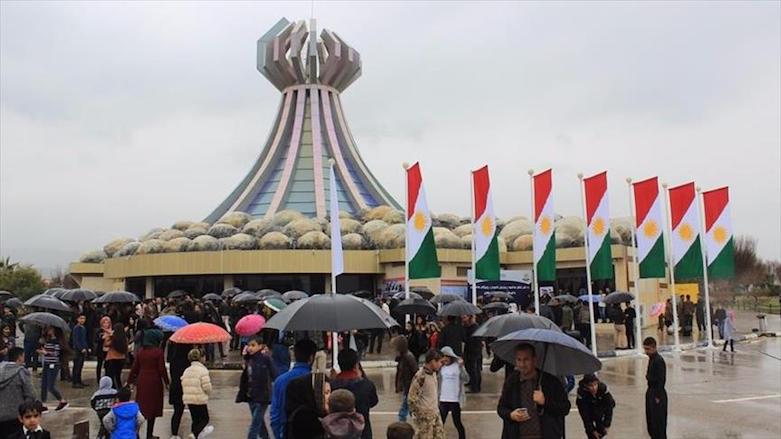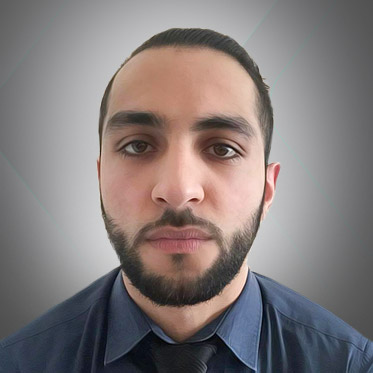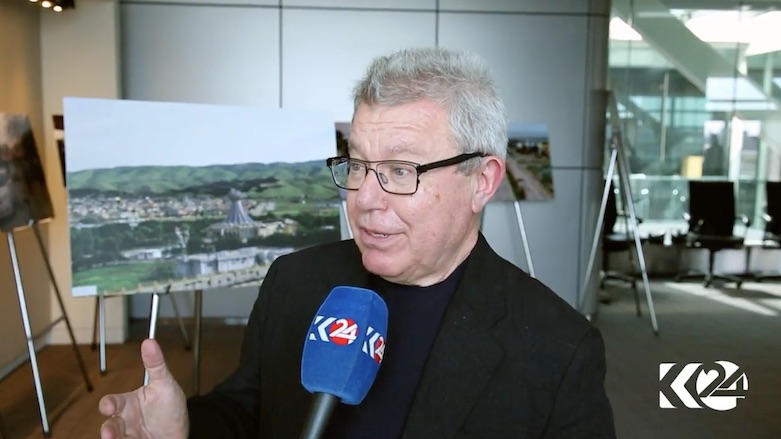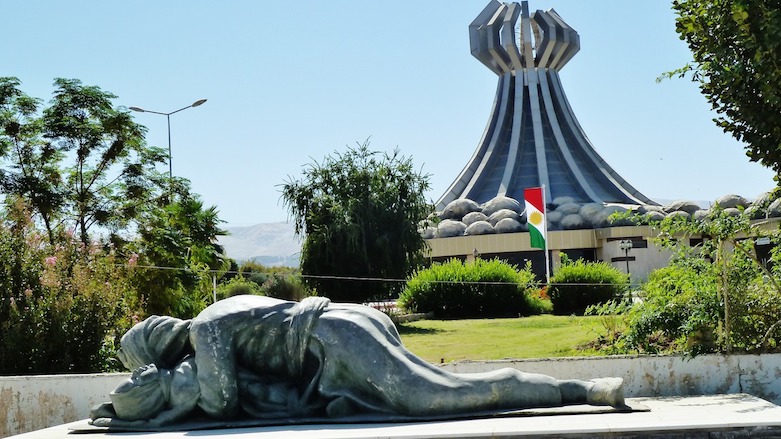VIDEO: Halabja conference in Washington marks 30th anniversary of genocide

ERBIL, Kurdistan Region (Kurdistan 24) – The Kurdistan Regional Government (KRG) Representation in the United States on Tuesday organized a conference, sponsored by Kurdistan 24, to mark the 30th anniversary of the Halabja genocide.
The conference, held at the prestigious Newseum in Washington DC, was titled “Echoes of Genocide in Kurdistan” and included a group of prominent Kurdish and non-Kurdish speakers.
KRG Representative to the US Bayan Sami Abdul Rahman and officials from the Iraqi government and US Congress shared their comments to mark the momentous day.
In her opening remarks, Rahman said the lack of compensation and recognition for genocide victims should be reviewed as she noted chemical weapons continue to be sold today.
“The suffering of people in Halabja reminds us that we must be vigilant today,” she said. “It is incumbent on all of us to speak out and prevent similar hostilities.”
Rahman reminded that over 3,000 Yezidi (Ezidi) women and children are still enslaved by the Islamic State (IS) since 2014 with many fearing a repeat of mass atrocities, adding that “the KRG was the first government to recognize IS atrocities as genocide.”
She explained that some members of the US Congress have attempted to sponsor resolutions to recognize the Halabja genocide crime.
“It is crucial that the international community understands that the view of the people of Kurdistan is shaped and controlled by its history. Kurds are not trapped by history. Their tragic past is a drive for commitment to building a positive future for Kurdistan,” Rahman stated.
On behalf of the Iraqi Embassy, representative Safa Yaseen said it was the Iraqi government’s “moral responsibility” to acknowledge what happened in Halabja and help victims and survivors.
Among the speakers was Todd Buchwald, the former Ambassador for Global Criminal Justice at the US Department of State. He stressed that such conferences were “critical,” adding it was “important to honor survivors and victims, [and] important to ensure that we never forgot such atrocities.”
“We must push forward efforts to ensure these atrocities do not occur again,” he affirmed. “Recognition of suffering is just one part of the story.”
US Senator Chris Van Hollen said it was the duty and responsibility of the international community not to allow atrocities such as the Halabja genocide to happen again.
“The US’ inaction at the time gave Saddam Hussein the green light to continue attacks on Kurds,” he continued. “It is important that [the US] Congress mark atrocities and genocide in an official way.”
Van Hollen explained that the World has failed to crack down on the use of chemical weapons and is not standing up as it should. “We need to redirect our efforts to ensure this does not happen again,” he said.
He reminded that the “Kurds are on the frontlines in Syria and Iraq. Without the Kurdish forces, we could not have pushed IS out of the region. It is important that the US does not abandon Kurds now.”
“Turkish attacks on Kurds in Afrin continue today. It is crucial for the US to stand by those Kurdish forces who fought IS bravely and not succumb to pressure from Turkey and stand down,” the US Senator stressed.
Simon Adams, Executive Director at the Global Centre for the Responsibility to Protect, blamed the international community’s failure to hold Hussein accountable for his crimes in Halabja as paving the way for other forces to attack civilian populations with chemical weapons deliberately.
US Senator @ChrisVanHollen: Kurds are on the frontlines in Syria and Iraq. Without the Kurdish forces, we could not have pushed #ISIS out of the region. It is important that the #US do not abandon Kurds now. #TwitterKurds https://t.co/U9YE6oOtmz pic.twitter.com/jZ4nDyeRvo
— Kurdistan 24 English (@K24English) March 13, 2018
The first panel at the conference included Gregory Stanton, the chairman of Genocide Watch, an Ezidi journalist who witnessed the 2014 genocide, Nawaf Ashur, and Dr. Michael Newton of Vanderbilt University.
Stanton spoke about the US’ abandoning of Kurds in the Kurdistan Region as well as recently in Syrian Kurdistan (Rojava).
“US leader’s must never abandon the Kurds. Kurdistan is an example of what can be achieved if Kurds are given full support,” he said.
“The US Air Force must condemn Turkey’s attacks on Kurdish areas,” Stanton added, referring to Ankara’s ongoing military operation against Kurds in Rojava’s Afrin. “We must stand with the Kurds. They are our friends, best allies in the Middle East.”
Dr. Newton added that “only through trials and public records can we tackle and recognize genocide according to international law.”
During another part of the conference, Thomas S. Kaplan, the Chairman of Justice for Kurds, stressed that the World should recognize the Kurdish people for their efforts in protecting humanity from the threat of IS.
“We owe the Kurds our gratitude for what they give to us especially today where they are on the frontlines protecting the world,” he said.
“I urge you all to express gratitude for this noble people and become companions of the Kurdish people,” Kaplan stated.
The conference’s final panel focused on the current crisis in Syria and, specifically, President Bashar al-Assad’s use of chemical weapons during the seven-year-long civil war.
The panelists included Michael Eisenstadt of the Washington Institute of Near East Policy, Dr. Seth Carus, a chemical weapons expert, and Mohammad al-Abdallah of the Syria Justice and Accountability Centre.
The event concluded with the premier screening of Gwynne Roberts film “One Yezidi Family vs ISIS” which recounted the story of an Ezidi family torn apart at the hands of the extremist group before being reunited.



